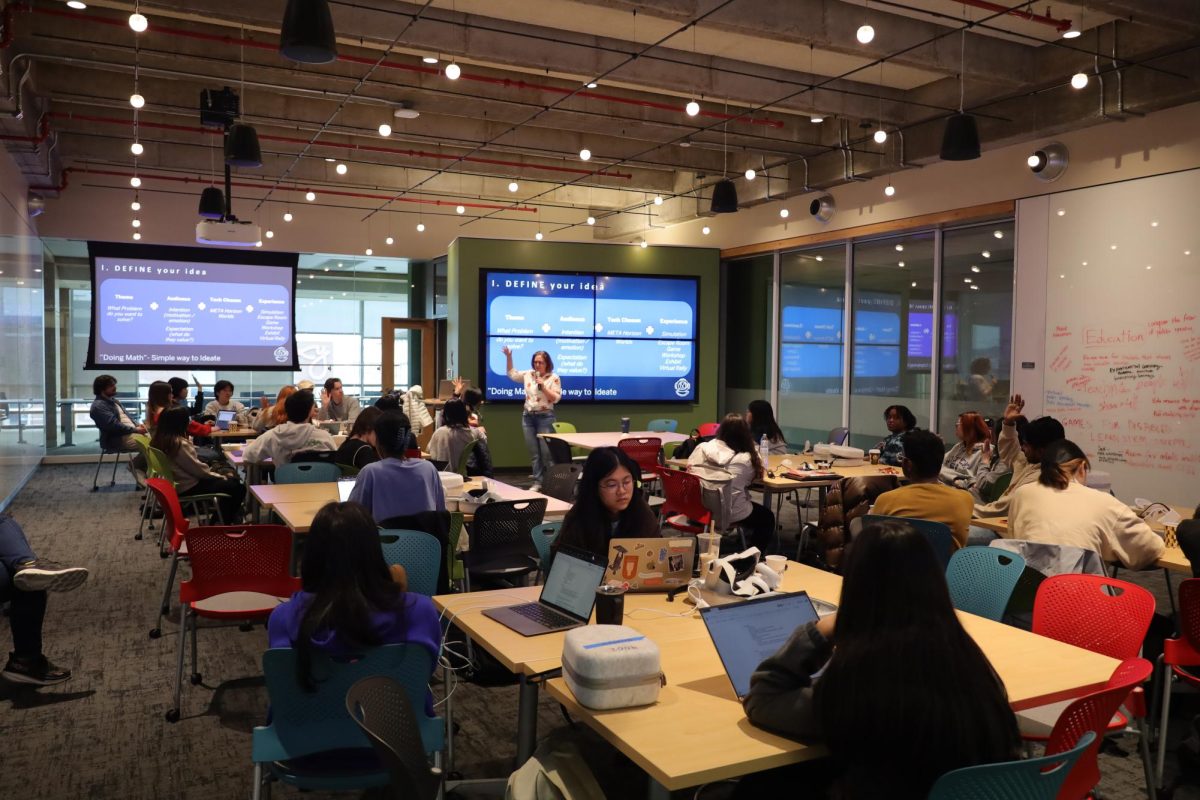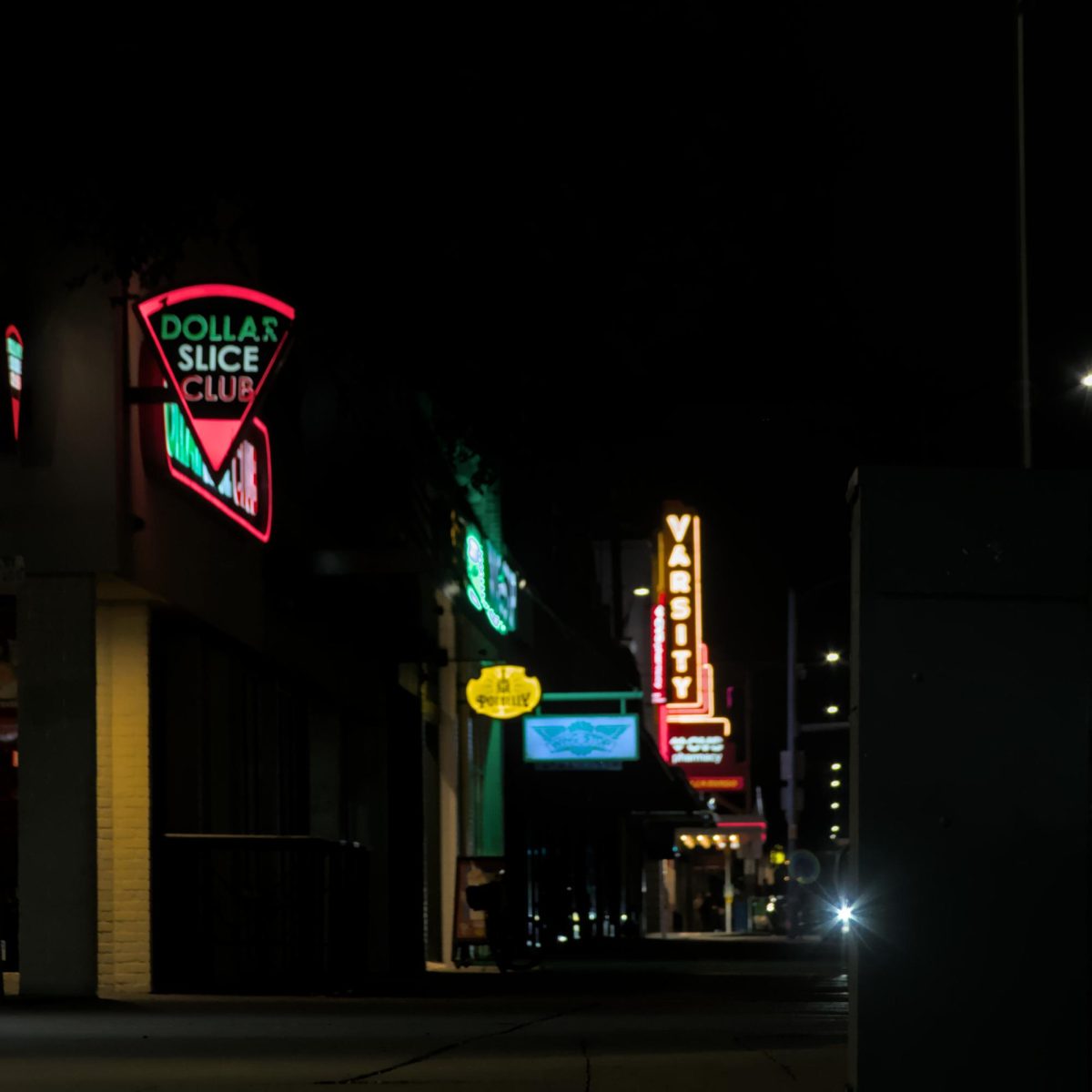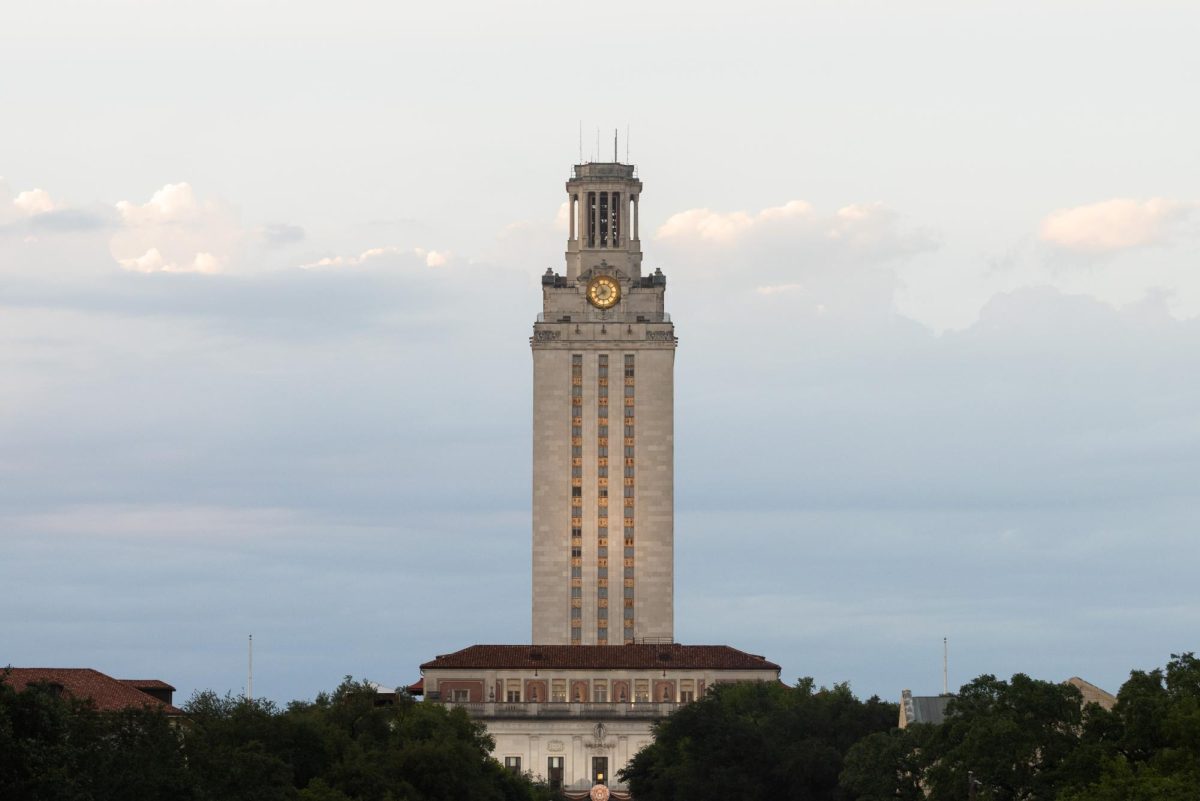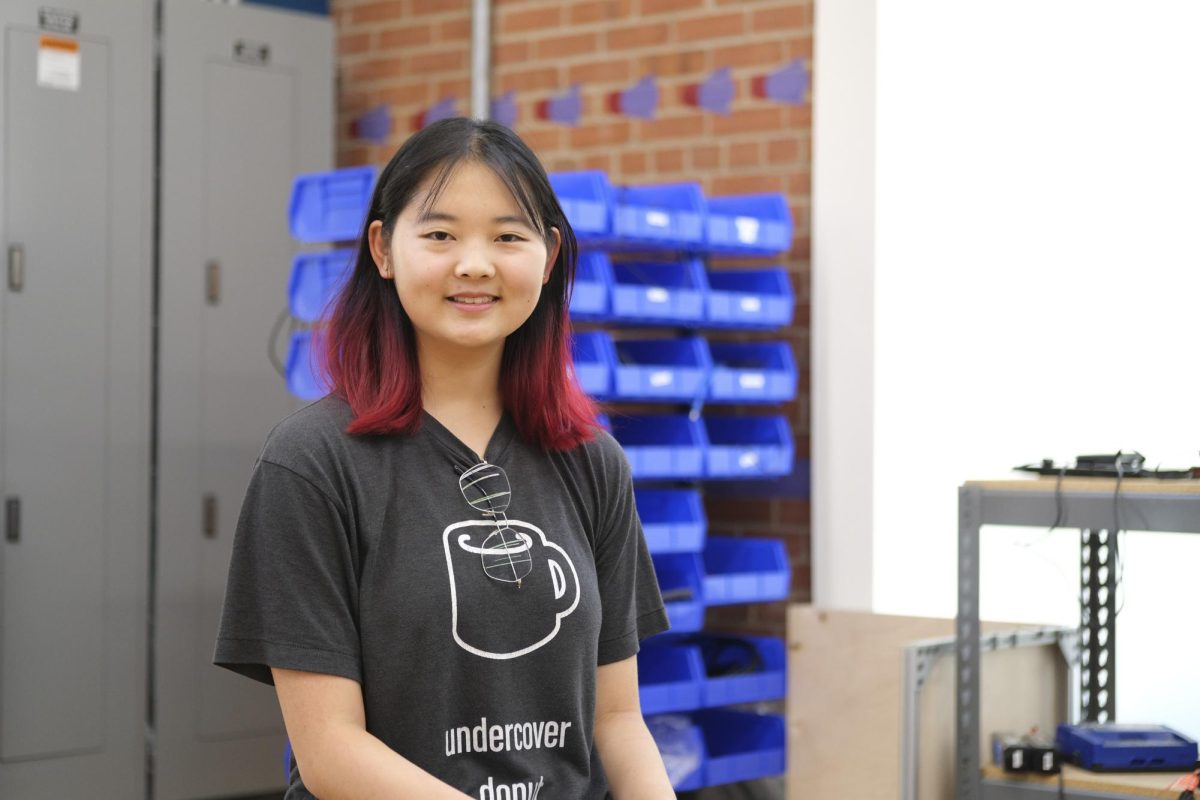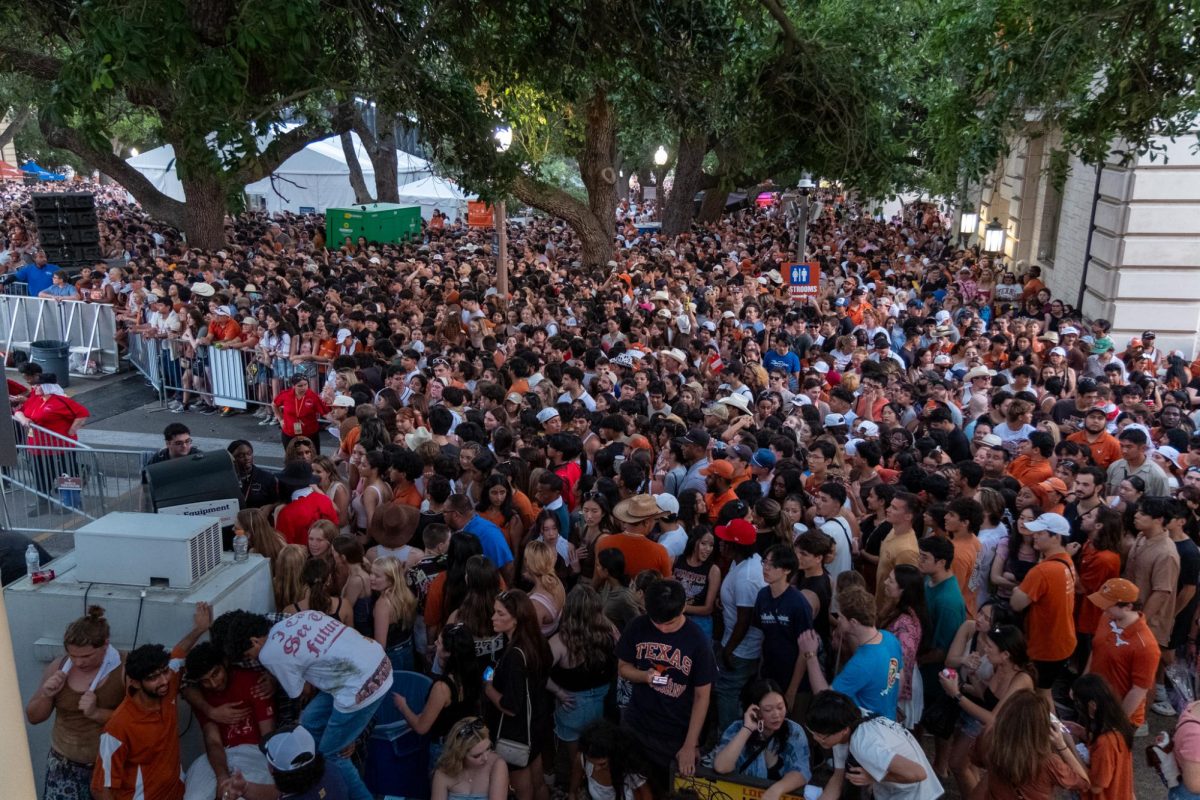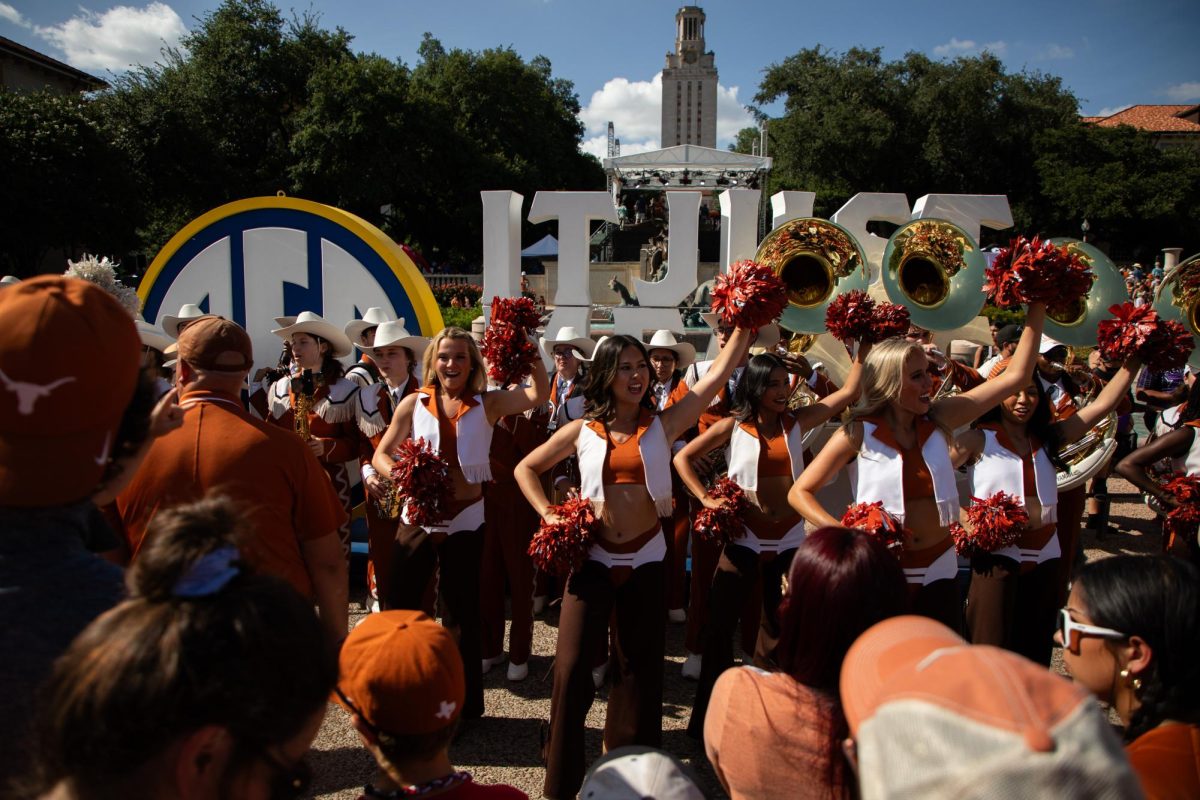The Social Impact BuildFest, a competition put on from Feb. 16-18, gave students the opportunity to apply emerging technologies to design experiences for audiences around a social impact cause, like mental health or environmental justice.
The event was hosted by the Texas Immersive Institute, an organization that provides access to technology and research design through the Moody College of Communication.
Erin Reilly, founding director of the Texas Immersive Institute, said the BuildFest’s goal is to “get new audiences … introduced to (novel) technology and in a low barrier setting, be able to experiment and tinker and try to develop in those tools.”
Azalea Laredo, program manager for Texas Immersive, said this year’s participants used virtual reality headset Meta Quest 2 and a controller to manipulate objects and build virtual worlds.
“The applications are limitless,” Laredo said. “You could have a world in space and the objects would be floating around without gravity, or you could be in a realistic world and objects will fall down.”
Laredo said while students may initially feel intimidated when learning to use virtual reality, even small-scale creations have the potential to make a great impact. “It could be something small, but as long as it’s interactive, and the user can engage in an activity in (the virtual reality experience) and if it can teach you something about social change, then it’s a win,” Laredo said. Reilly said BuildFest makes technology more accessible to people.
“I’ve been a big proponent for women and girls in STEM, and I think that all we need to do is break down those barriers to enter and make a really comfortable communal space where we feel like we are listened to and that we have a voice in those spaces,” Reilly said.
Phoebe Lin, an arts and entertainment technologies sophomore, worked with Kelly Zhang, an arts and entertainment technologies junior, on a game that incorporates restoration therapy techniques. This is their second year competing.
“After experiencing not placing (last year) and also putting in a lot of hard work only for it to feel like it didn’t go anywhere, we both sought out counseling,” Zhang said.
Inspired by their experiences in counseling, Lin said their project this year thrusts users into running a restaurant deep within the ocean. As they run the restaurant, users face stressors like intimidating customers and eventually use the pain-peace cycle as a coping mechanism to deal with overwhelming feelings. The pain-peace cycle allows individuals to recognize their negative thoughts and reorient them to positive ones.
“I’ve done this little activity for restoration therapy twice now, and it’s been so helpful every time I’ve done it, but it never becomes immediately relevant to me,” Lin said. “Here, users pick those words, and then … you see it become relevant.”
Lin said people initially believe BuildFest is a hackathon designed for programmers to show off their skills, but that’s far from the truth.
“We invite people who want to make a social impact, but don’t have the technology to do so,” Lin said. “They come in here and they learn that technology so they have another avenue for making the change that they want to see.”



